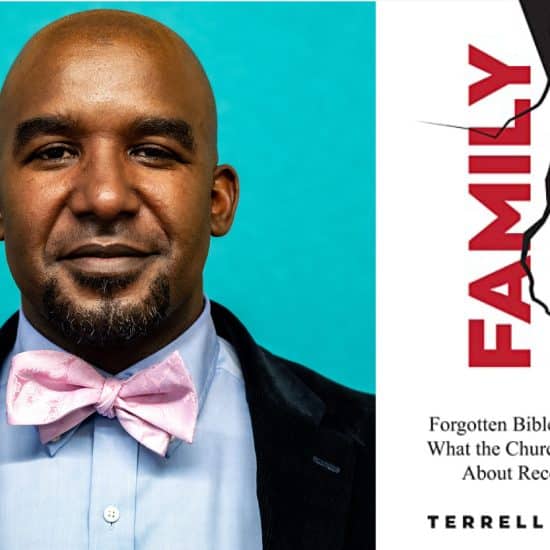CHARLOTTE, N.C. (ABP) — Grace Baptist Church — once one of the fastest growing congregations in Charlotte, N.C. — sold its buildings and disbanded earlier this year.
Finding a way to spread joy from a "sad situation," the church sold its facility below market value to a growing black congregation and gifted missions in many venues.
Leland Stephens was pastor at Grace during its heyday. He led the congregation from 1959 to 1979 and returned in the late 1990s for three years as interim pastor in an effort to help the church get back on its feet.
Stephens said that in the 1960s and early 1970s houses were popping up all around the church, which was founded in 1946.
The church grew from 70 to about 1,200, according to Stephens, who called the growth "absolutely amazing."
That started to change in the late 1970s when a black family moved into the neighborhood. "For sale" signs started popping up.
Stephens said he pleaded with people in the community to welcome their new neighbors, but it didn't do any good. As white families sold, black families bought.
Church membership dropped.
"It kept going down and down and down," Stephens said.
Membership leveled off for a while when Stephens returned as interim, but later started to decline again.
"Panic set in, and despair," he said.
Jim Rhyne, who joined the church in 1978, was chairman of deacons at Grace when the congregation was trying to decide what to do.
He also chaired a transition committee formed about a year ago as attendance dropped into the 40s on Sundays.
"We were just staying afloat," he said. "We were not making headway."
A Hispanic congregation and later a Presbyterian church rented Grace's old sanctuary. The income helped Grace meet its expenses but didn't stop the decline.
The average age of the congregation was about 75 or a little higher, he said.
"We were just not reaching the community," he said.
There was some discussion of selling the buildings and moving, but eventually the church voted unanimously to disband, Rhyne said.
"It was hard," he said. "It really was."
Daphene Cantrell, a retired district court judge and a member of Grace since 1964, said "there wasn't anything happy" about what happened.
"You'd have to go through it," she said. "It's a traumatic experience."
Cantrell, the church historian, wrote a church history given to those who attended the final service on Jan. 25. She said she stayed up till 2 a.m. many nights leading up to the sale trying to finish the history.
"I wanted to have a lot of specifics in it, because I knew it would be the last history of Grace Baptist Church," she said. "I wanted to give credit to so many of the people who were diligent in their positions."
Stephens said the church had a great history.
"It's sad, but it's not all sad," Stephens said. "The church did a lot of good."
Grace sent out more than 20 people into the ministry, Stephens said.
Numerous people were saved, weddings were held, and friendships were formed at the church, he said.
"It was a good church," he said. "It was a place you could come and raise your kids."
Cantrell said she heard of a church that was sold on the open market and was eventually bought by an Islamic group. Initially she didn't want to take part in any discussion about selling the property.
Eventually, she came to accept the situation by describing the transaction as transferring the property to another Christian group.
"The salvation for us is it is in the hands of a Christian congregation that loves it," she said. "That's my solace."
One of the conditions of the sale was that the buyer use it only as a Christian place of worship, Rhyne said. Morris Reddon is pastor of Greater Bethel AME Church, which bought Grace's facilities.
He said his congregation understood that the members of Grace wanted someone to worship Jesus Christ in the building.
"We could make that promise without any difficulty," he said.
Some of the members of Grace attended Greater Bethel's first Sunday on the property Feb. 1. They stood when the church recognized visitors.
"It was bittersweet for them and you could see it," Reddon said. "We promised to take care of it for them."
Rhyne said Grace sold the property, which was valued at about $2.2 million, to Greater Bethel for $750,000. Buildings on the property total more than 25,000 square feet and sit on about five acres, he said.
Reddon said Greater Bethel had looked at other properties around Charlotte.
"To be honest, nothing compared to this," he said. "If you're looking to grow like we are, this is the perfect place to be."
After paying off the debt, members of Grace voted to give $100,000 each to the Lottie Moon and Annie Armstrong missions offerings of the Southern Baptist Convention and smaller amounts to other causes.
In addition, the members of Grace visiting Greater Bethel on its first Sunday presented the AME congregation with a check for $100,000 to help with repairs.
"They didn't have to do that," Reddon said. "Grace showed us grace."
Reddon said the members of Greater Bethel, which had been meeting in a funeral home for a year, weren't thinking about repairs when they moved in.
"This looked like a palace to us," he said. "It's a miracle."
Members of Greater Bethel canvassed the area before the church moved, Reddon said. Membership is growing with some visitors coming from the community, he said.
Rhyne said he is glad the church is reaching the community.
"You can drive by that church and see cars in the parking lot, see activity and see the building used for the glory of God," Rhyne said.
Stephens said he is happy to see the buildings full of people again.
"From my perspective, I take great pride in seeing the buildings filled with happy worshipers," he said. "It's a sad story, but it's a good story. The church lives on."
Steve DeVane is managing editor of the Biblical Recorder.






